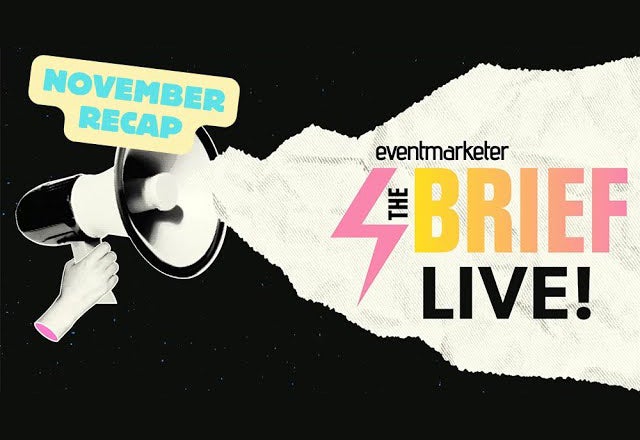The Evolution of Making the First Page
Here’s an infographic offering a brief history of "The Evolution of Making Page 1." It starts in 1994, when Lycos was the first search engine to use a crawler database and software to rank results, and when WebCrawler was the first true robot to index the entire content of the Web. In 1997, the term "search engine optimization/SEO" was first used. In 2003, spam became a real problem for search engines. In 2005, Google rolled out its Jagger, Bourbon and Allegra updates. Read on for more visually stimulating tidbits on the history of making the first page of search engine results pages. (Search Engine Journal)
PPC Ad Strategies to Prepare for the 2011 Holiday Season
Summer is long gone, which means (believe it or not) it’s already time to plan for the holidays. Black Friday, Cyber Monday, Green Monday and Free Shipping Day are among the most important days of the holiday season for search marketers. Three areas demand attention: keyword research, search experience and impact to offline. (Search Engine Watch)
5 Free SEO Tools
Here’s a list of five free SEO tools to add to your arsenal: 1) Blekko SEO Analysis, 2) DoubleClick Ad Planner, 3) Shared Count, 4) Backtweets and 5) SEO Doctor. (Search Engine People)
Pattern Analysis to Improve Your Website
Your site search data, or the phrases your users type into your internal site search engine, is data loaded with insights to help make customers satisfied. This post offers an overview of pattern analysis, which identifies patterns in the main phrases used by your site’s visitors. (Search Engine Guide)
7 Tips for Improving the SEO of Your Facebook Page
As more brands and businesses move away from traditional websites and toward Facebook pages, the SEO waters are getting muddier. "It used to be that with the right mix of keyword-laden text, reciprocal links, and clever use of heading text, a crafty SEO expert could push a website up in the rankings. But now the focus is on your Facebook page, and you still need to get your brand or business in the top of the rankings." Among the seven tips for boosting the SEO of your Facebook page are to get links from multiple sources, don’t hide from the search engines and optimize your multimedia. (Search Engine Land)
Google Wallet Launches
Google Wallet had a quiet launch yesterday. The limited availability of Google Wallet makes the launch more symbolic than anything, but this points to the growing importance for mobile payments in the e-commerce ecosystem. (Search Engine Land, CNET)
5 Ways to Optimize Your Facebook Page
Here’s a look at some lesser-known features on your Facebook page that can be optimized for your brand: 1) featured photos, 2) the left-side links panel, 3) rolling feedback, 4) featured likes and 5) wall tab layouts. (Social Media Examiner)
The First 7 Items on Your SEO Audit To-Do List
If you have just 24 hours to complete an SEO audit for your site, these should be the first seven items on your to-do list: 1) look at Google Webmaster Tools for the site; 2) look at Bing Webmaster Tools for the site; 3) perform a "site:" check; 4) crawl the sites; 5) perform title checks by hand; 6) check the "keyword space"; 7) compare your backlinks to your 2-3 top competitors. (Search Engine Watch)
Facebook Set to Unveil Media-Sharing Platform
According to reports, Facebook is set to reveal a media platform at its f8 developer conference this week. The platform will enable users to share music, TV shows and movies, turning profile pages into entertainment hubs. Spotify, Rhapsody and Vevo are among the approximately 10 media services signed up to be part of the platform. (NYTimes.com, ZDNet)
An SEO Audit in 20 Minutes or Less
Locating your site’s basic SEO problems can be done in 20 minutes or less. This post offers a rundown and a nifty infographic for doing this. It covers six areas: 1) Web browser, 2) home page, 3) global navigation, 4) categories and subcategories, 5) optimized Web content, and 6) off-page SEO. (Search Engine Journal)
A Guide to Long-Tail Link Building
Long-tail link building is about driving a small share of link volume per page on a site while using three or more phrases as the anchors. Also, instead of driving links to top-level pages, this strategy drives links to tighter match, subcategory pages. Here’s a rundown on how to execute this strategy, which looks more natural than exact-match anchors, uses Google’s own data to pick out long tails and builds a link profile that is more varied, among other things. (Explicitly Me)
Is it Possible to Improve AdWords Quality Score With Google +1?
Google +1 holds a lot of potential for search marketers, but how will it affect AdWords quality scores? As of today, +1 votes do not influence quality scores, though it may become one down the road. However, +1 still demands attention because click-through rates do influence quality scores. (Search Engine Watch)
Converting Visits to Sales: Going Beyond SEO
A solid SEO campaign alone won’t convert visits to sales. A site needs to be up to snuff if it wants an SEO campaign to help with conversions. The site needs to be clear about the products/services being sold, include attractive photos and offer clear information about your business, among other things. (Search Engine People)
3 Tips for Optimizing Your Lead-Management System
Only about a quarter of new leads can be considered sales-ready, while another quarter can probably never be counted on to buy from your business. The other 50 percent of those leads should be managed. Building relationships with your leads, being a thought leader with your leads and knowing when the lead is sales-ready are three tips for managing your leads well. (HubSpot)
50 Google Analytics Resources
Here’s a roundup of 50 Google Analytics resources to help you get to know the platform inside and out. The list spans official resources to general tips and information, to information related to the Panda updates, and beyond. (KISSmetrics)
Google Is Testing a New Search Results Page Without Icons
More white space and no icons — that pretty much sums up the new search results pages Google is testing. The new design adds more white space underneath the search box, where the word "Search" appears in red under the Google logo, along with the number of results appearing under the search box. The icons on the left-hand side of the page are also removed. "On searches with a large number of AdWords ads, organic results could be pushed completely off the screens of some searchers, allowing the PPC ads to completely dominate Google’s ‘above the fold’ results." (Search Engine Watch)
20 Ways to Promote Your Facebook Fan Page
Your Facebook fan page can be a rich source of interaction, R&D and lead generation. The nut to crack is how to make people aware of it. Here are 20 different ways to promote your Facebook page. Among the tactics are to place your fan page URL in your email signature, write a blog post about your new fan page, customize your fan page URL and use targeted keywords in Google AdWords. (Social Media Examiner)
Less Web Tracking Means Less Effective Ads
There appears to be something of a direct correlation between the limits on tracking Internet users and the effectiveness of online marketing. According to research by a professor at the MIT Sloan School of Management, "European Union regulations that limit the tracking of Internet users were associated with a 65 percent drop in the effectiveness of online marketing. In other words, if Internet companies cannot track what you do online, they find it harder to pitch you stuff that you may be persuaded to buy." (NYTimes.com)
3 Ways to Add Value to Your Email Communications
Email communications should include content and a message that gets your customer interested and engaged. It should also provide them with value. Also, the emergence of social media has made integration across channels significant. In light of all these factors to consider, here are three suggestions on how to add value to your email communications: 1) get personal by versioning a component of regular email and make it relevant; 2) offer value at the right time; 3) listen to your customers. (ClickZ)
Why You Should Remove Numbers From Your URLs
Top 10 lists have been all the rage lately. "However, as a responsible publisher, marketer, and SEO with an eye for evergreen content, there are more responsible and better long-term URL options you can make for ‘top 10’ and list style posts than using a number in the URL." This is because "top 10" has almost no value from a keyword/search perspective. Try to generate URLs that are as evergreen as possible to save you from potential headaches in the future. (Graywolf’s SEO Blog)
AOL, Yahoo and Microsoft Form an Advertising Partnership
What competition? AOL, Yahoo and Microsoft hashed out an agreement to sell some of each other’s ad inventory. While each company will sell their own display ad inventory, they’ll sell each other’s “Class 2 Display Inventory” as well. “This type of inventory refers to the display ad inventory the companies cannot sell and would normally hand over to ad networks.” (Search Engine Journal)
Bing Introduces Adaptive Search
Bing introduced what it calls “Adaptive Search,” which essentially means the search engine will “learn” from your previous searches to cater your future searches to your needs. This will use cookies that last for 28 days. (WebProNews, Search Engine Land)
Why All Your Accounts Should Be Running Mobile Campaigns
The importance of paying attention to your mobile audience can’t be emphasized enough. This post offers a foundational case for rethinking your account structure in terms of targeted device. By splitting out your campaigns into mobile- and desktop-specific content, you can manage your spend more efficiently and create better-targeted creative in your ad text. If you don’t have the time/resources to develop mobile landing pages or separate mobile sites, there’s a simple workaround: set up your mobile campaign ads with a call extension in AdWords (PPC Hero)
3 Tips to Make Your Desktop Content Mobile-Friendly for SEO
Using a service like Usablenet is convenient, but it comes with some pitfalls. Here are three tips to help you avoid them and make your content search-friendly: 1) don’t index other sites under your domain, 2) use canonical tags on your desktop pages that have been transcoded and 3) design your mobile site for mobile users. (Search Marketing Standard)
Facebook Unveils ‘Subscribe’ Button, Summary Notification Emails
Facebook has introduced a “subscribe” button that will enable users to filter stories that you want to see in the news feed. The goal is to help you to: 1) choose what you see from people in the news feed; 2) hear from people, even if you’re not friends; and 3) be heard by others, even if you’re not friends. Facebook is also testing a new email frequency feature to send a summary email with all your recent notifications. The aim here is to reduce inbox clutter and drive more traffic to the site. (ReadWriteWeb, Inside Facebook, ZDNet)



